
Closed borders and open books: Education in Poipet’s most vulnerable communities
On the border of Thailand and Cambodia the Covid-19 pandemic has created unique challenges and intensified difficult circumstances. Providing vital support in this unprecedented time, international NGO Love Without Boundaries is making change, one child at a time
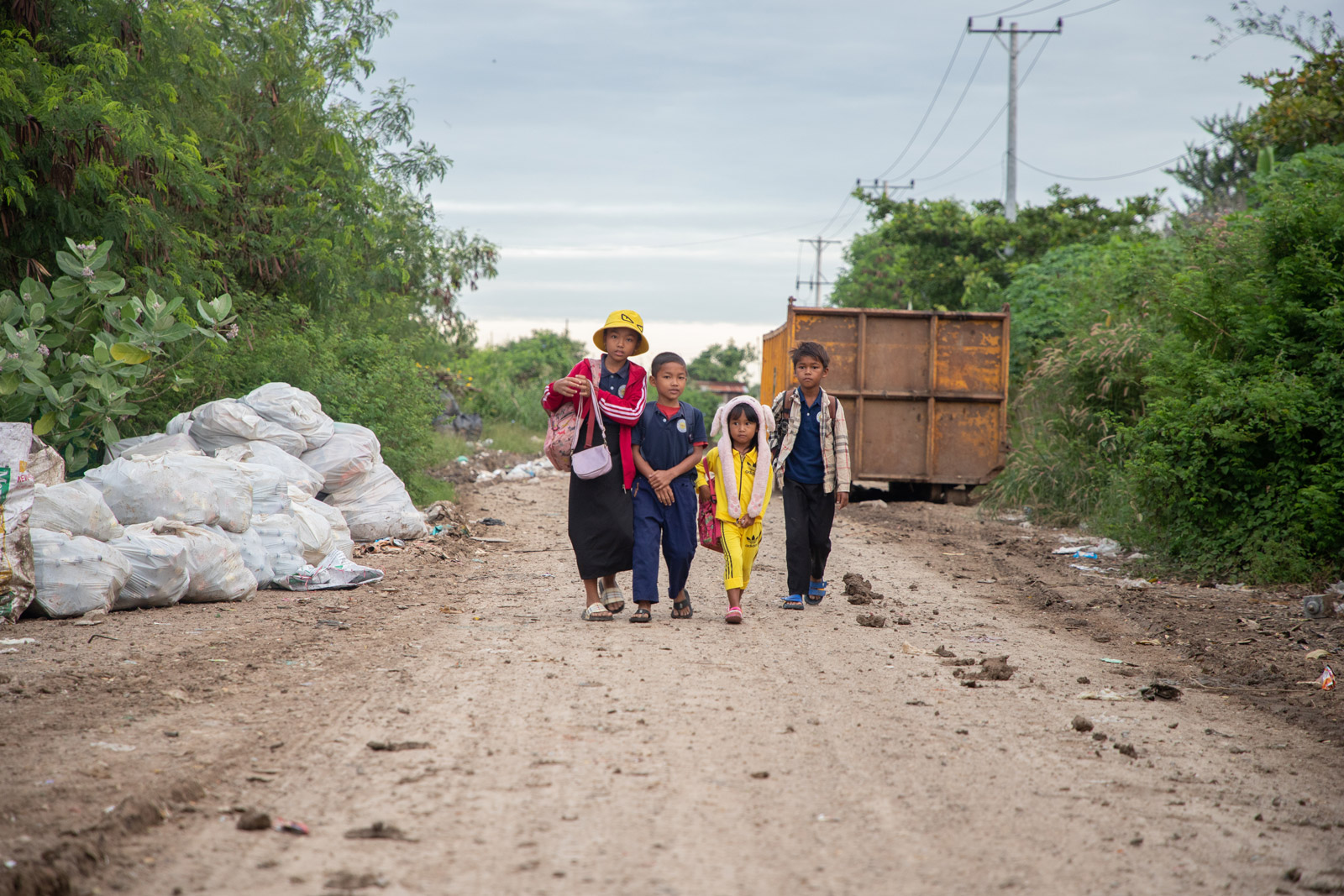
On a bright morning just outside Poipet, where distance from the Thai border is measured in metres not miles, students in clean blue uniforms are called to attention before class, as teachers take roll and the Cambodian flag is raised overhead. A common scene made novel by more than 18 months of closures, the reopening of schools across the country signals a welcome step towards normalcy for students and teachers.
It will likely take years to fully grasp the long term impacts on the children that have lived through this unprecedented disruption of education. But on the border, where many communities deal with extreme poverty and rely on regular crossings for work in Thailand, the pandemic complicated an already difficult situation.
“Normally, the parents are working in Thailand, so they have to leave their children at home in the village with nothing to do,” explained In Sokleng, director of Love Without Boundaries (LWB), an international NGO working in Cambodia. “The children don’t have a chance to come to school.”
In the frontier town, where many people either work in the casinos catering to Thai and Chinese gamblers or supply day labour for agriculture and construction operations across the border, Covid-19 restrictions left thousands without livelihoods overnight. In a 2021 report, the Center for Alliance of Labor and Human Rights (CENTRAL) examined the challenges facing the nearly 2 million Cambodians working in Thailand during the pandemic.
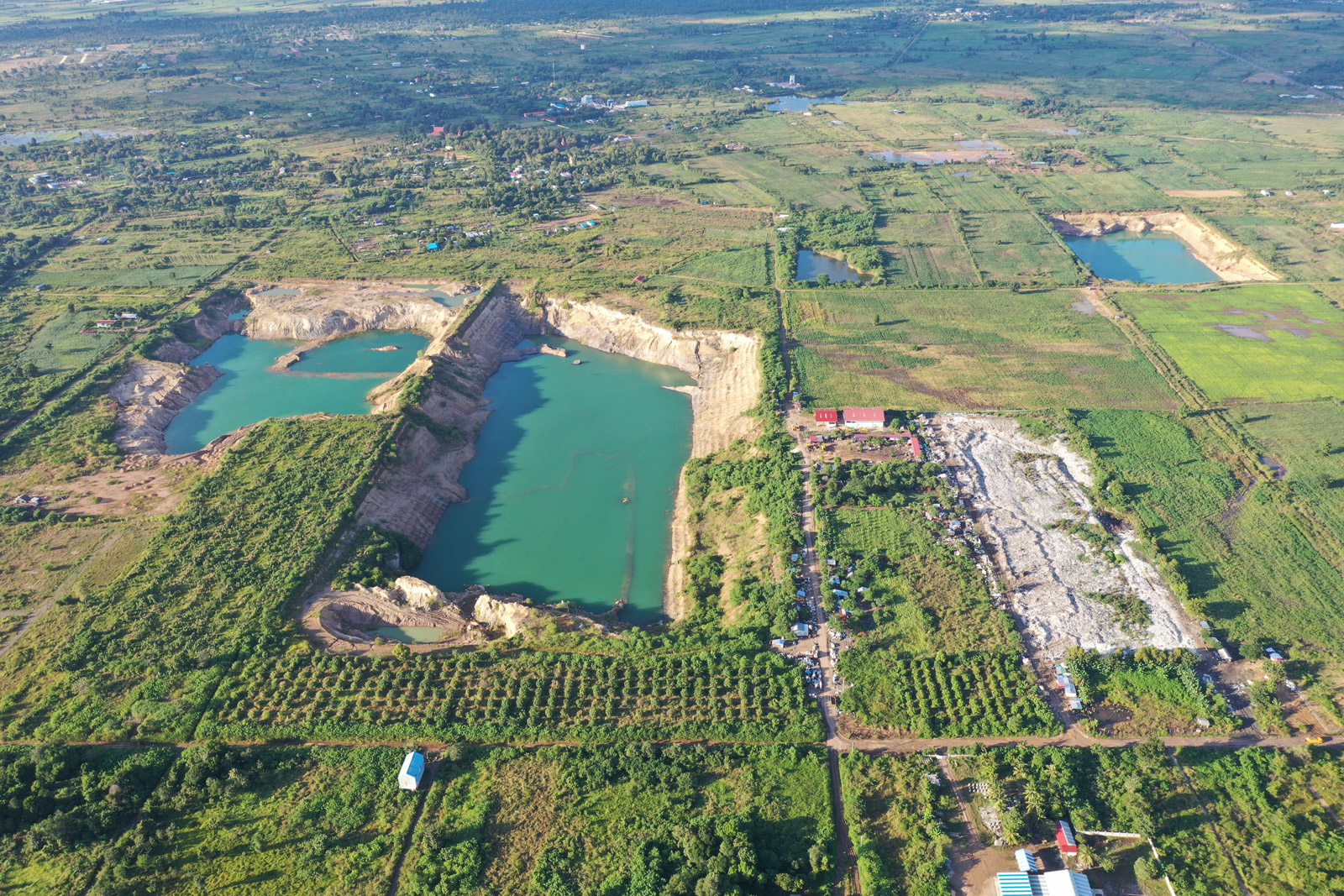
“They lost their jobs, lost their income,” explained Dy Thehoya, head of the Anti-human Trafficking and Migration Unit at CENTRAL. “They faced exploitation, trafficking and if they got infected with Covid-19 they had no money for treatment.”
When Thailand announced a state of emergency in late March 2020 that put construction sites and other high-risk workplaces across the country into lockdown, a surge of Cambodian labourers returned home. The International Organization for Migration (IOM) estimates more than 225,000 labourers returned to Cambodia, many of whom were forced to pay exorbitant fees to brokers.
Working with migrants and trafficked persons around the country for the last five years, Dy witnessed an increased vulnerability to unscrupulous brokers during Covid-19, with the price of a clandestine crossing skyrocketing from 250 baht (roughly US $7.50) to more than 10,000 baht (nearly US $300). The trips often drained whatever money workers had saved or forced them deeper into debt and once back in Cambodia, they were met with government protocols meant to stop the spread of the virus.
“When they crossed through the border they had to stay in quarantine,” Dy explained. “There were not enough bathrooms and the food was not good quality; the government used old schools for quarantine so the facilities were not so good.”
After languishing in pandemic limbo, sometimes for weeks, migrant workers were cleared for release and returned home, reuniting with families and loved ones. But with schools shut and the pandemic’s economic downturn in full swing, homecoming provided little in the way of opportunities for those in the small village of Rangsei just outside of Poipet.
“When Covid hit, many of the families had to come back to the village. They had no work, no money,” LWB’s In explained. “There was more drinking and domestic violence.”
In a collection of shacks constructed from discarded plastic and timber, metres from a sprawling landfill, many of the 56 families who call this area home scratch out a living scouring the mountains of rubbish for aluminum cans and plastic bottles. When Covid-19 shut down the borders, the additional income brought by day labour was cut off, forcing them to survive on the meagre income they earn cashing in recyclables.
One of several villages where Love Without Boundaries focuses its efforts since launching operations in 2016, the support that the group provides to the landfill community has become even more crucial. Providing emergency medical care, a foster care program with 20 foster families housing 81 at-risk children, and invaluable aid to trafficking survivors, the group’s comprehensive approach sets it apart from others operating in the area.
LWB also contributes to the nutritional needs of thousands of people across the country. Since the beginning of 2021, in cooperation with the Cambodian government, LWB has reached 8,125 people with more than 43,000 kilograms of emergency food relief, including Bonnie’s small family.
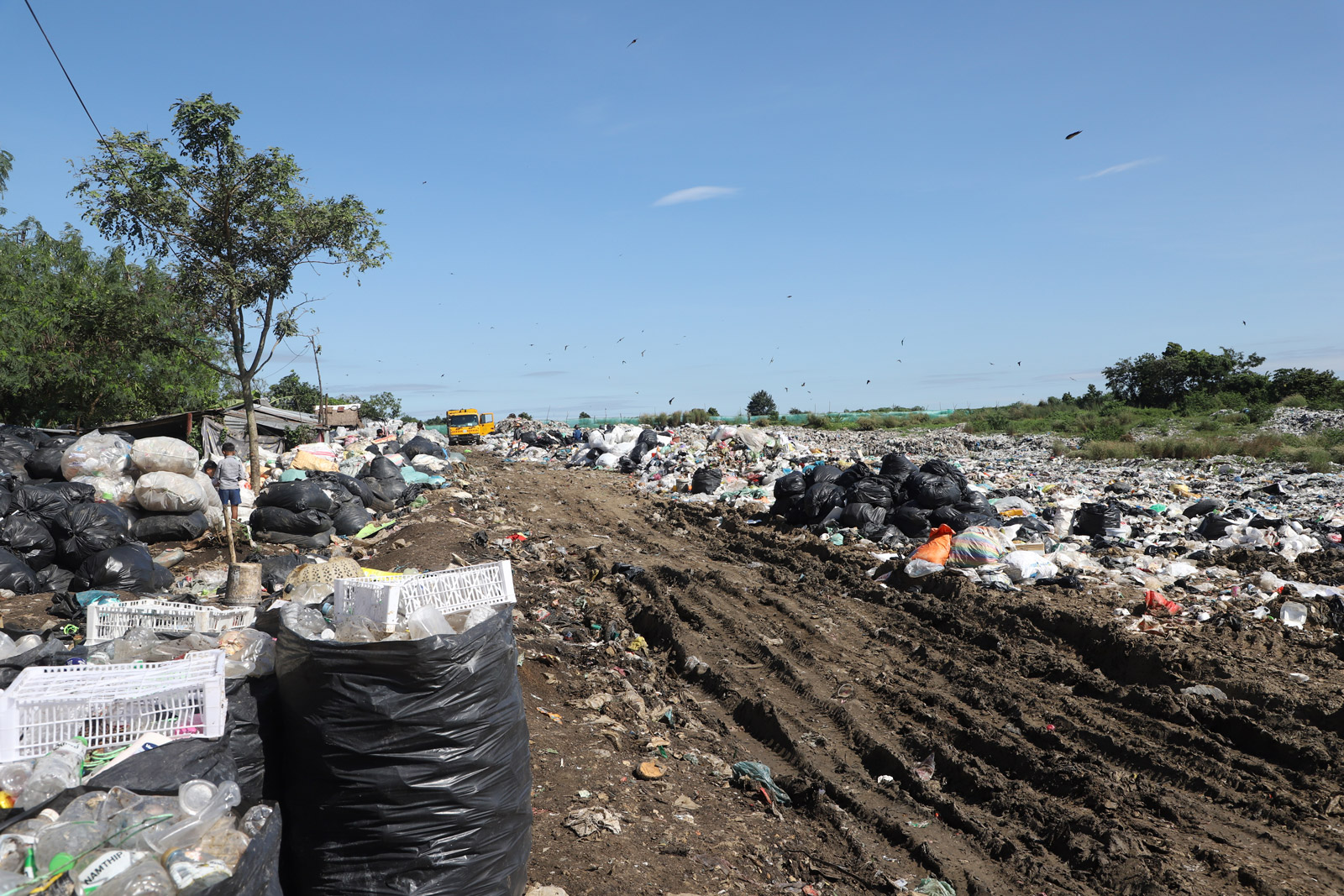
Living with her older sister since their parents died, the 14 year old spends her time outside of the classroom in the landfill collecting cans, bottles and anything else she can sell, earning a few dollars a day on which the siblings survive. But she is “not disgusted by its dirtiness,” instead remaining optimistic. Excited to finally be back in class at LWB’s Rangsei school after the extended closures, Bonnie understands the importance of education for her future.
“When there is school and teachers, I am so happy to be able to study,” she exclaimed, “These days jobs require literacy so if I do not have knowledge, it will be difficult.”
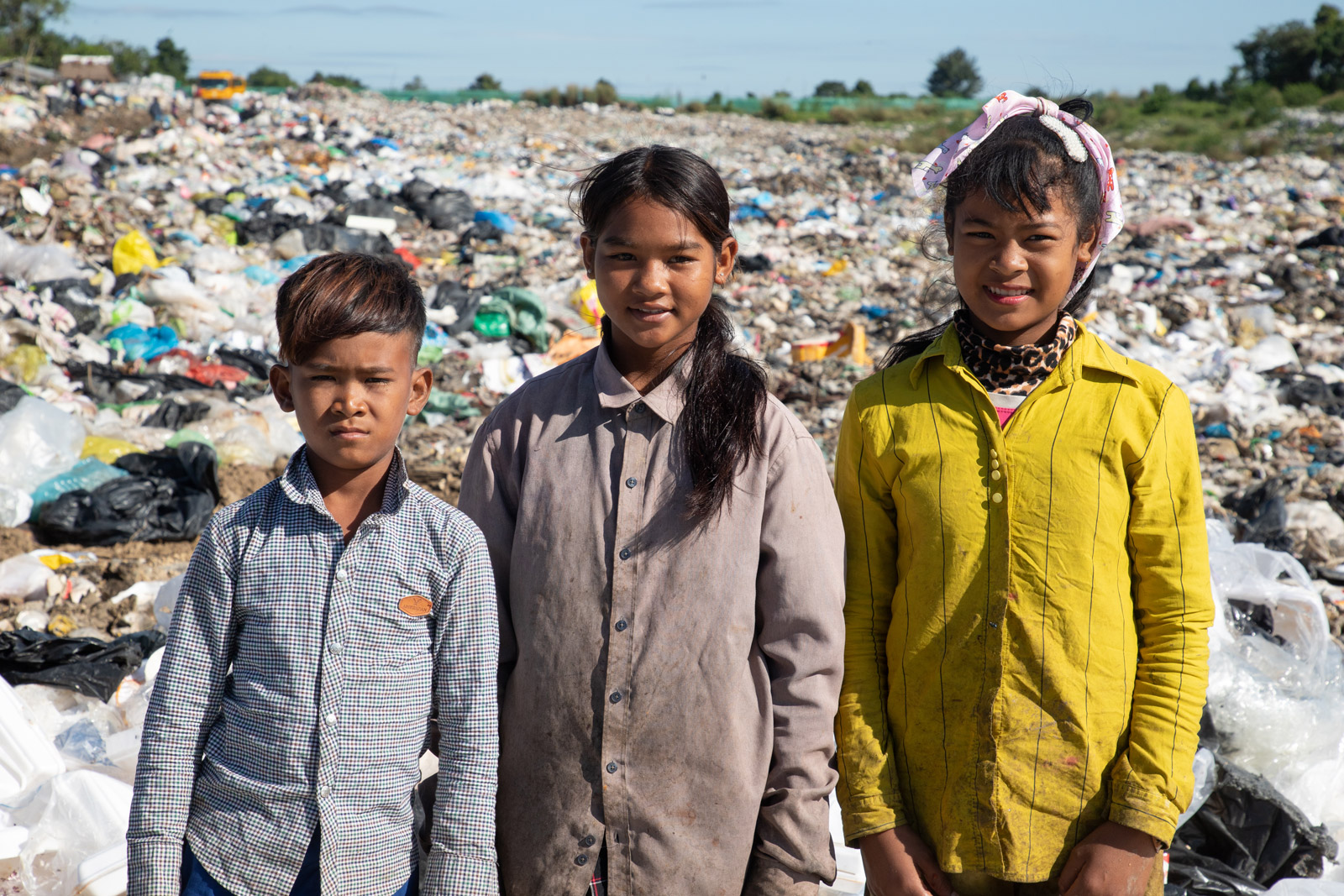
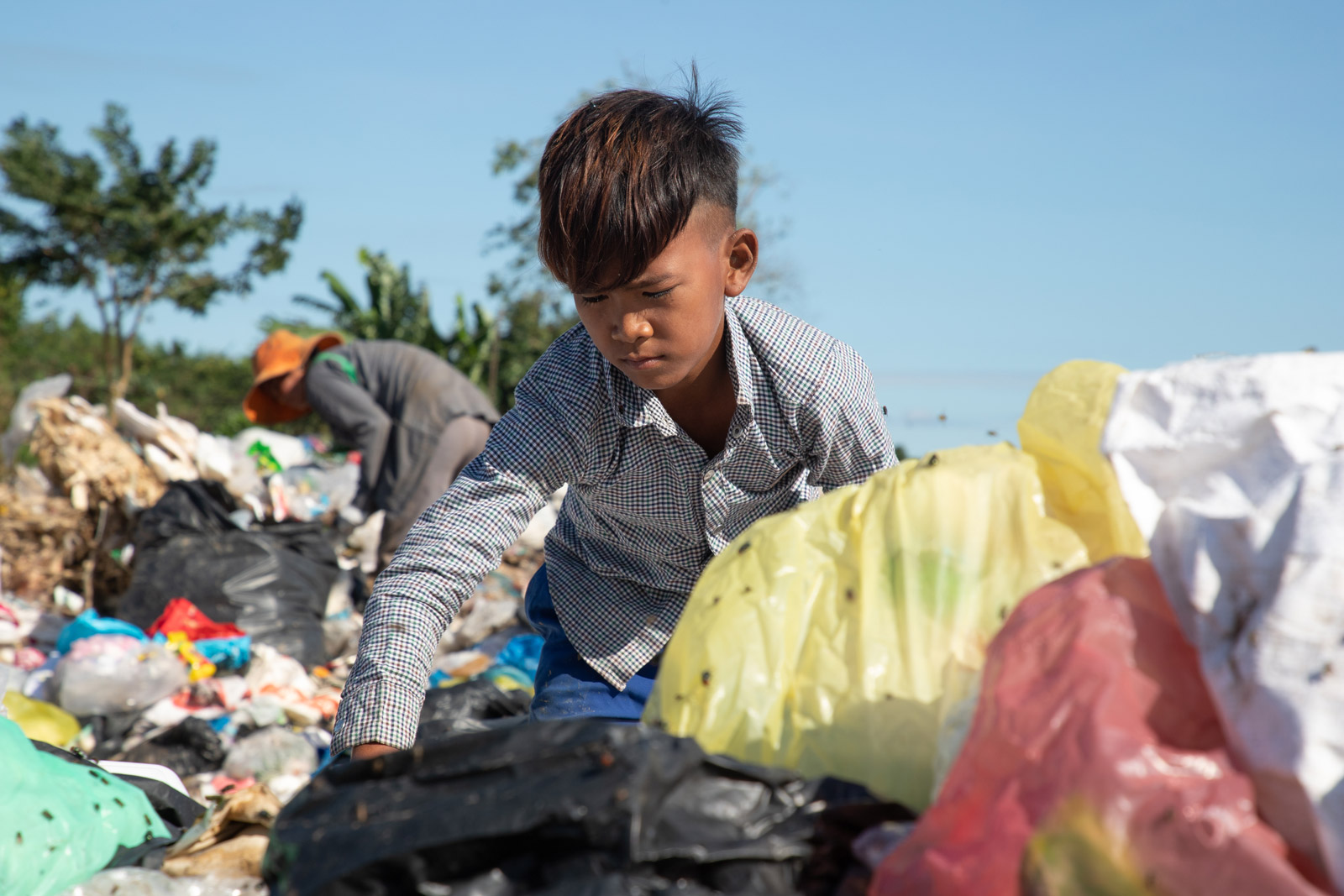
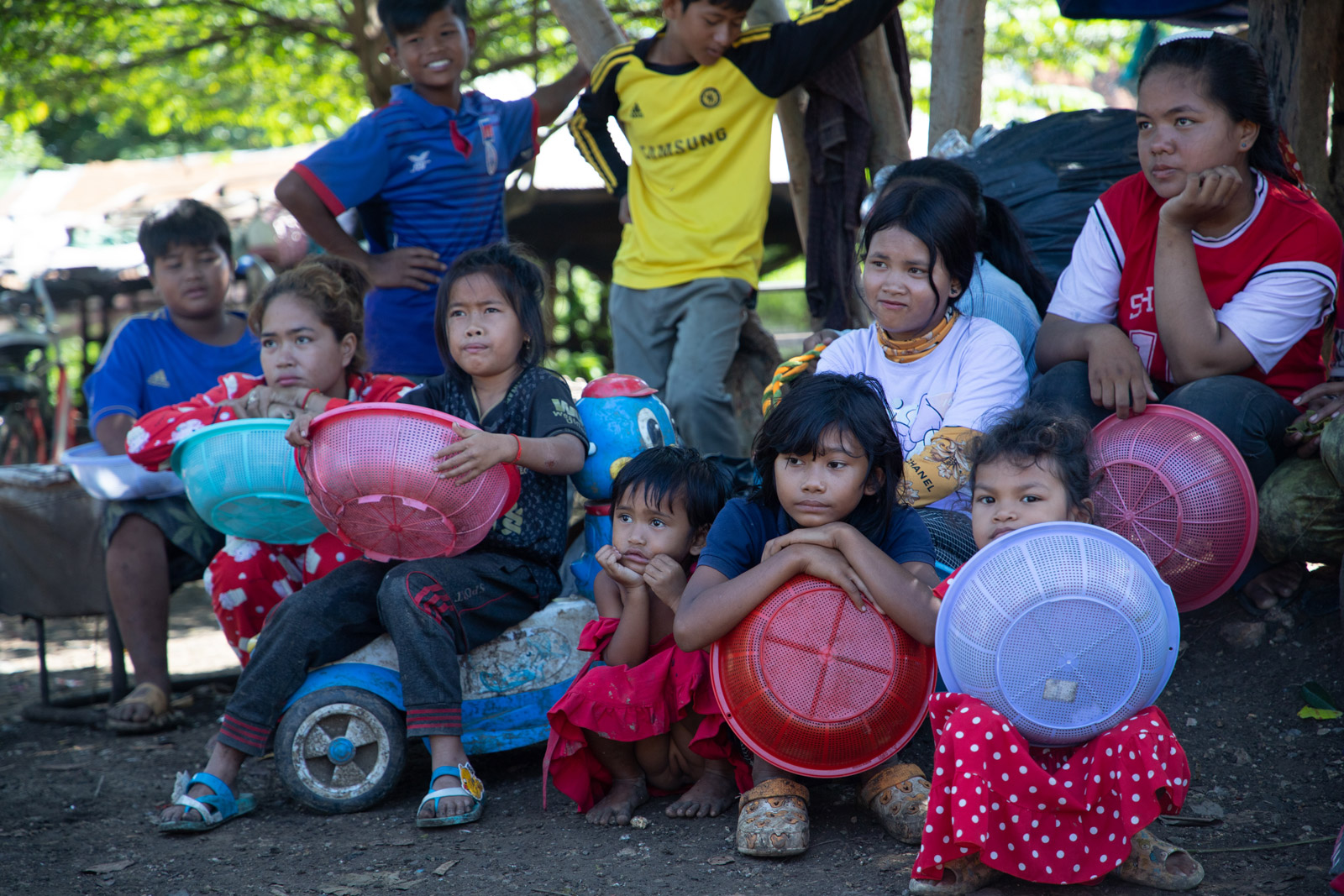
While the food drops have proved vital for the health and wellbeing of Bonnie and other families during the pandemic, LWB’s staff also work hard to help keep students studying and minimize the learning loss that is inevitable during school closures. However, these communities face entrenched disadvantages.
A UNICEF report released in March of 2021 and produced in conjunction with international NGOs and Cambodia’s Ministry of Education Youth and Sport shed light on the difficulties of education under Covid-19. The greatest challenges to “accessing continuous learning platforms” were financial constraints, according to the report. In Rangsei village, the bleak economic reality meant the digital solutions gaining so much attention during the pandemic were non-existent.
For the teachers at LWB’s Rangsei school, their greatest tools were daily visits to the village to deliver worksheets and school supplies, as well as short, socially distanced lessons at students’ homes. For Kerri, a former LWB student who returned to teach, house calls were vital to keeping her 5 and 6-year-old students on track. While some parents were initially wary of the teacher’s influence, attitudes changed as time went on and classrooms reopened.
“During Covid there were some parents that didn’t encourage their children’s learning and some even discouraged it,” Kerri explained. “But now, after seeing that their children are able to read, able to sing, able to attend school and get food, they see the value of us as teachers. They show us respect, and some even apologized for their behavior before.”
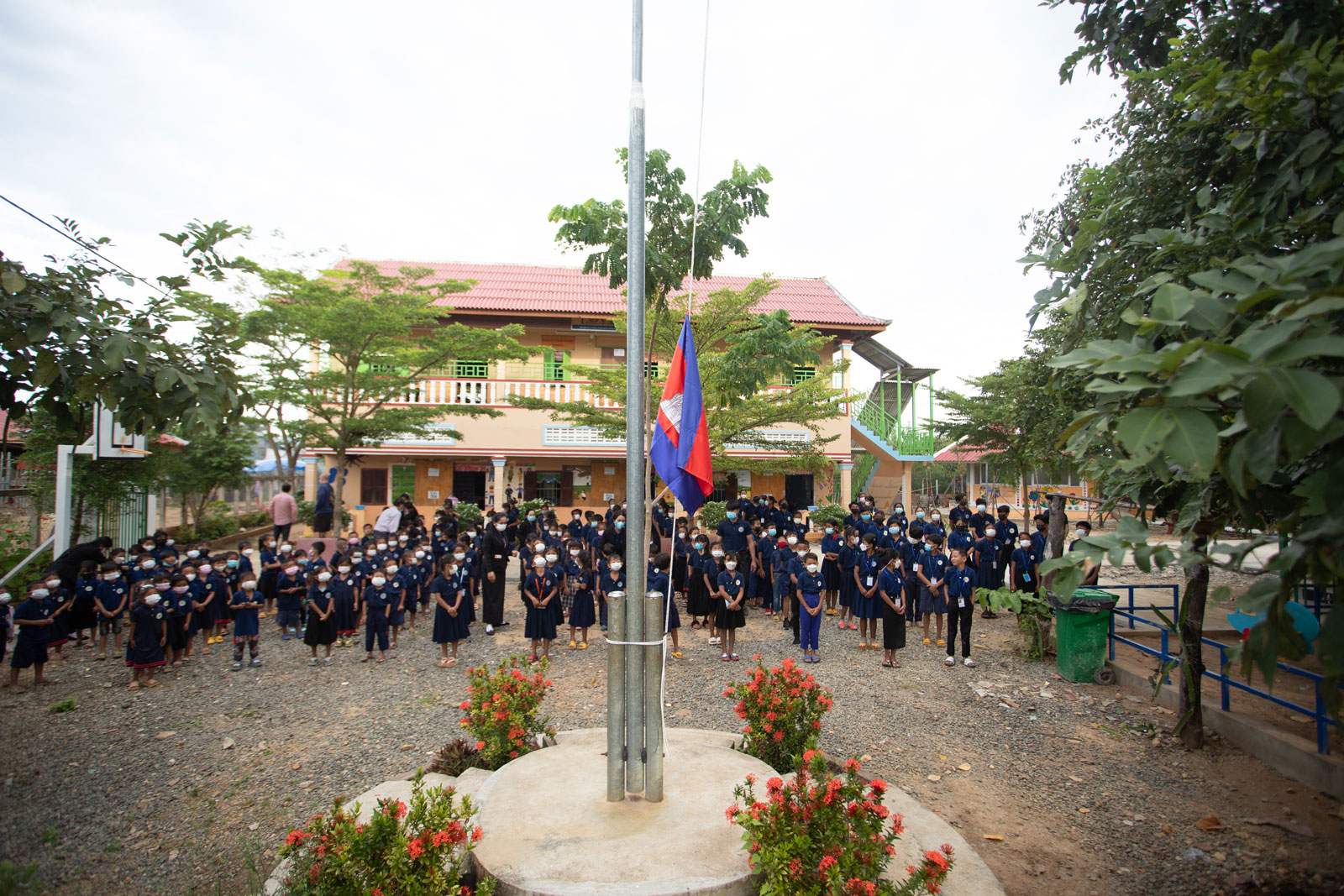
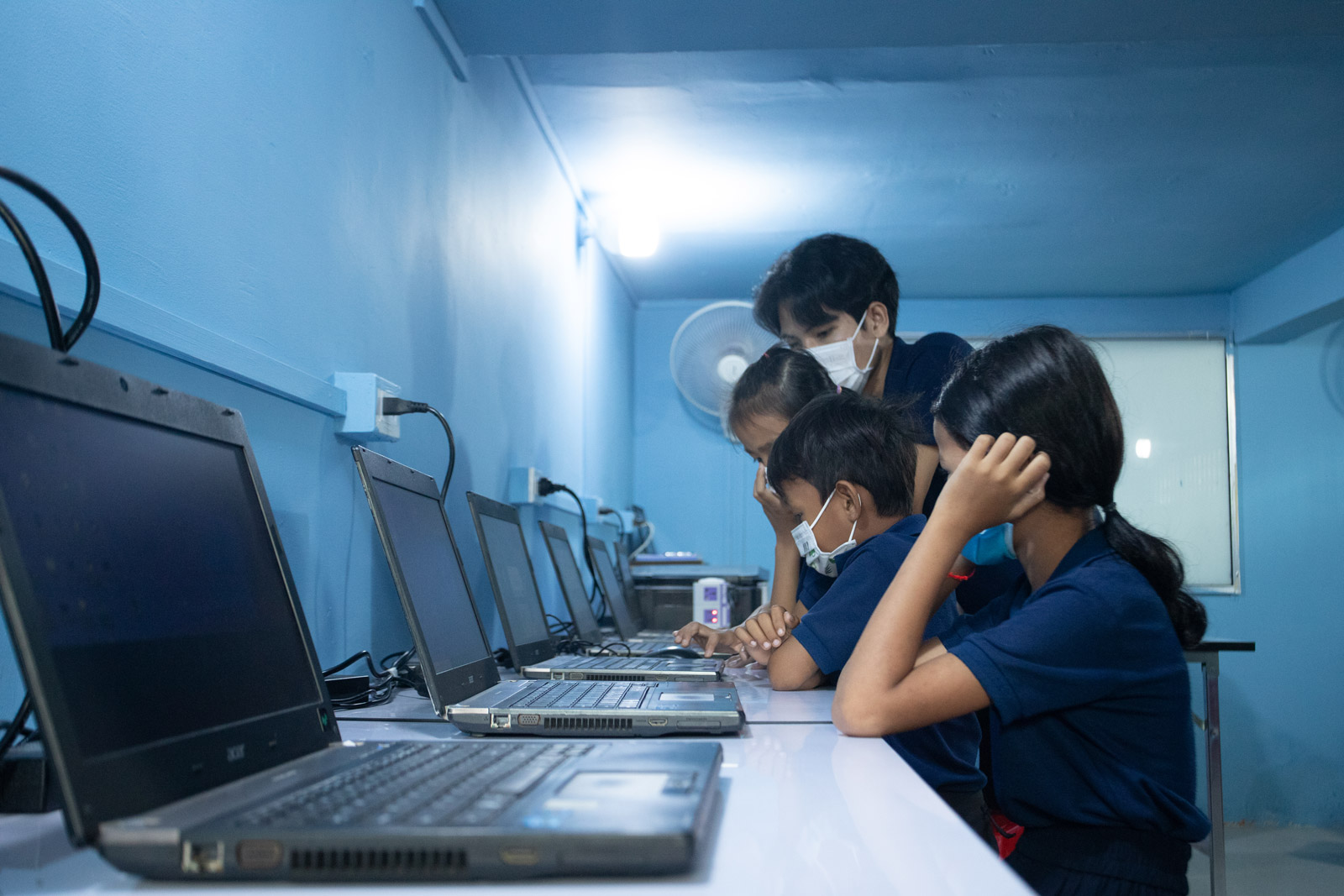
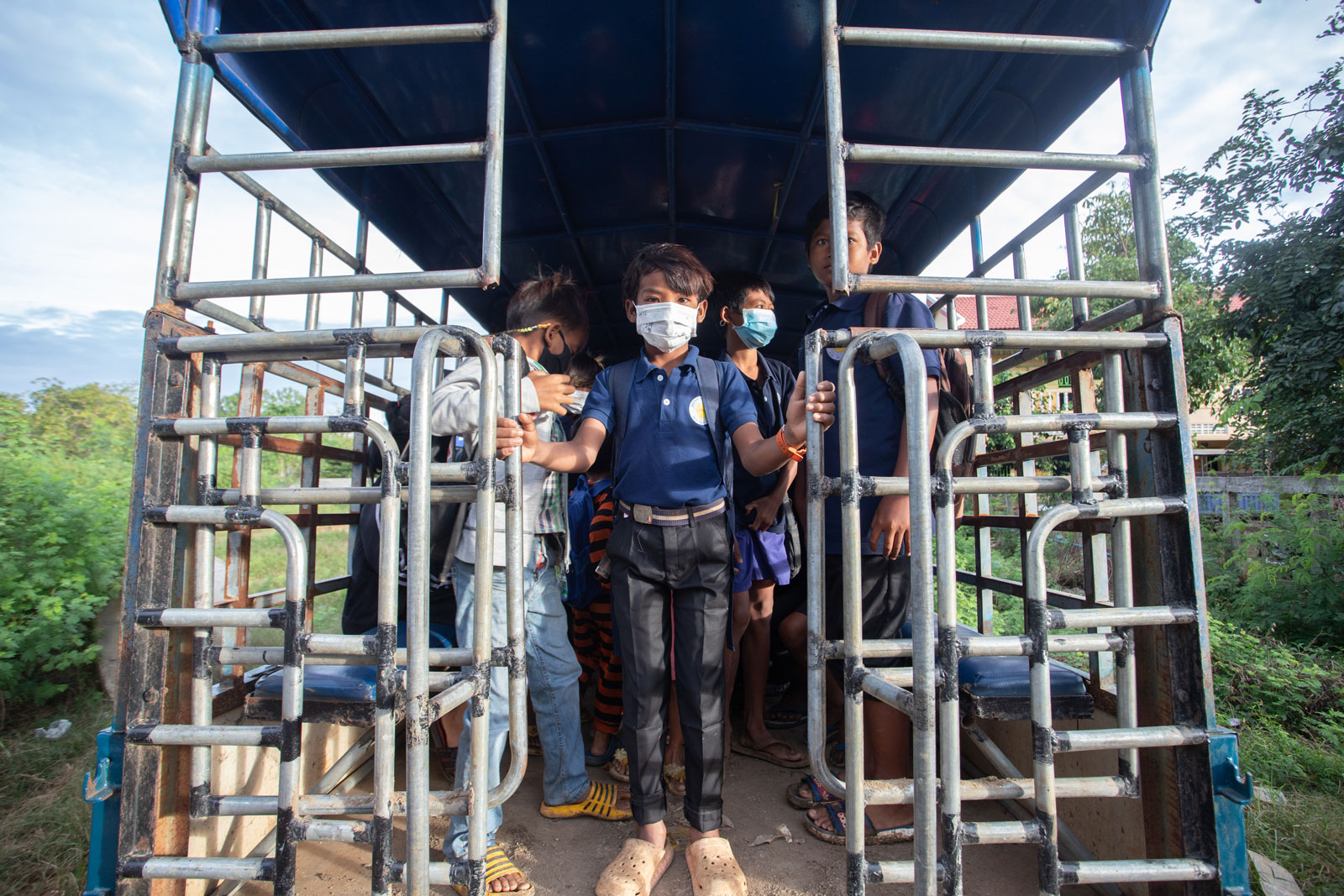
Rangsei village and the landfill area are not the only villages where parents’ attitudes were an obstacle to their children’s education. Just a few kilometres from the landfill is Sokhem village, another small community where LWB has been working since 2016.
“We tried to put the school there in the community, but the parents didn’t want a school for their children,” In explained. “They cannot read, they cannot write, they just cross the border to work and come home to drink in the evening.”
With borders closed and money dried up, LWB’s food drops have provided much needed relief in the small village. In fact, this nutritional support was changing lives in Sokhem long before the pandemic hit.
Known as the “handicap village,” the community grew from land originally granted to decommissioned soldiers, including many amputees. In recalled that children dying from malnutrition was not uncommon when he first came to Sokhem in 2016. Providing food to the village was an important first step in winning over parents, but seeing their children’s transformation after attending school led to lasting change.
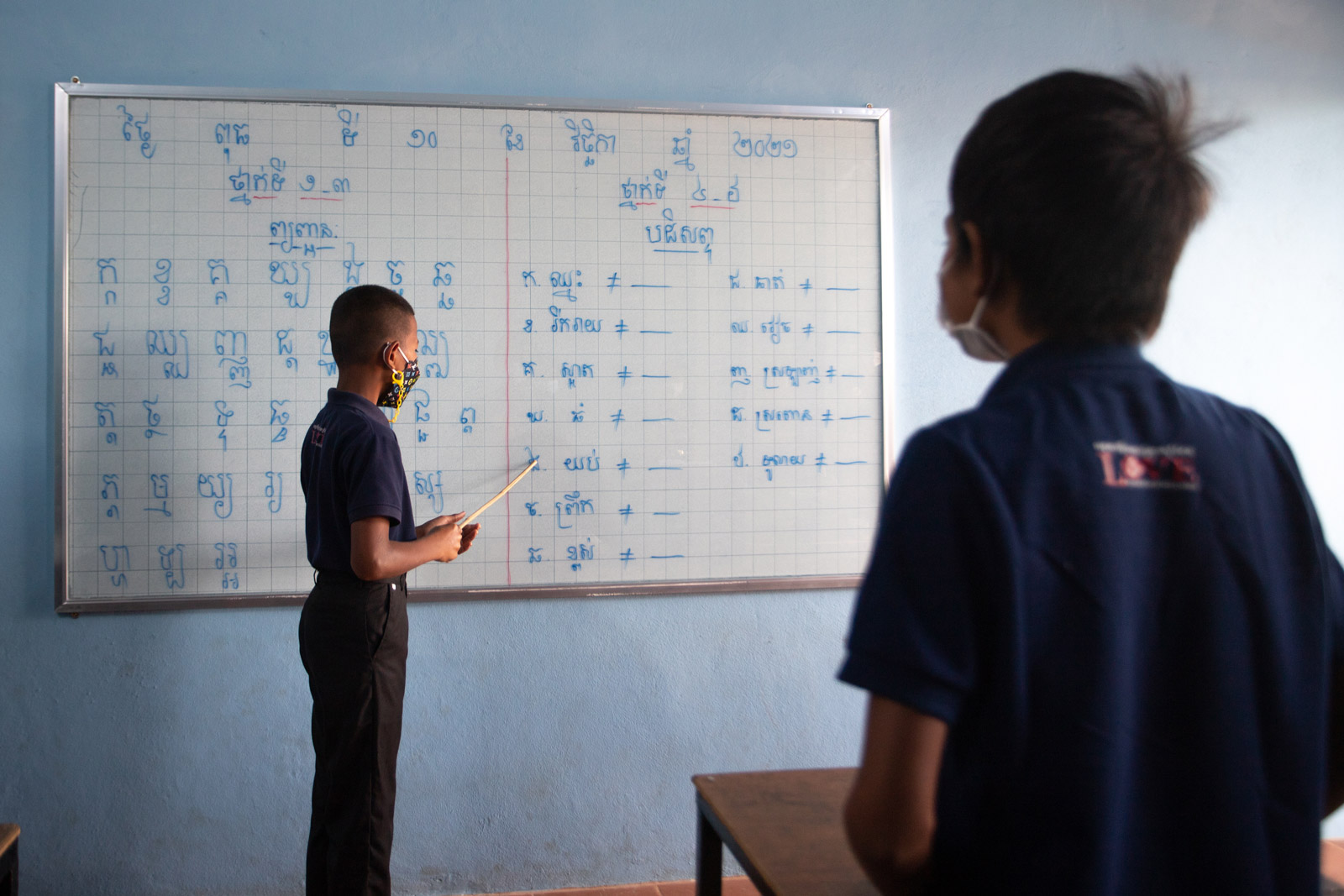
“They went to school and got an education and when they came back home, they showed respect,” In said. “The parents had never seen that.”
If she wasn’t attending LWB’s Sokhem school, 14-year-old Ruby — whose mother died and eldest sister was trafficked into Thailand — would be helping her father feed fish at the aquaculture farm where he works. Instead, she is practising her English and playing in the school’s vegetable garden between classes. Her father, himself a victim of one of the thousands of landmines still plaguing the border, has learned to appreciate the power of education for his family.
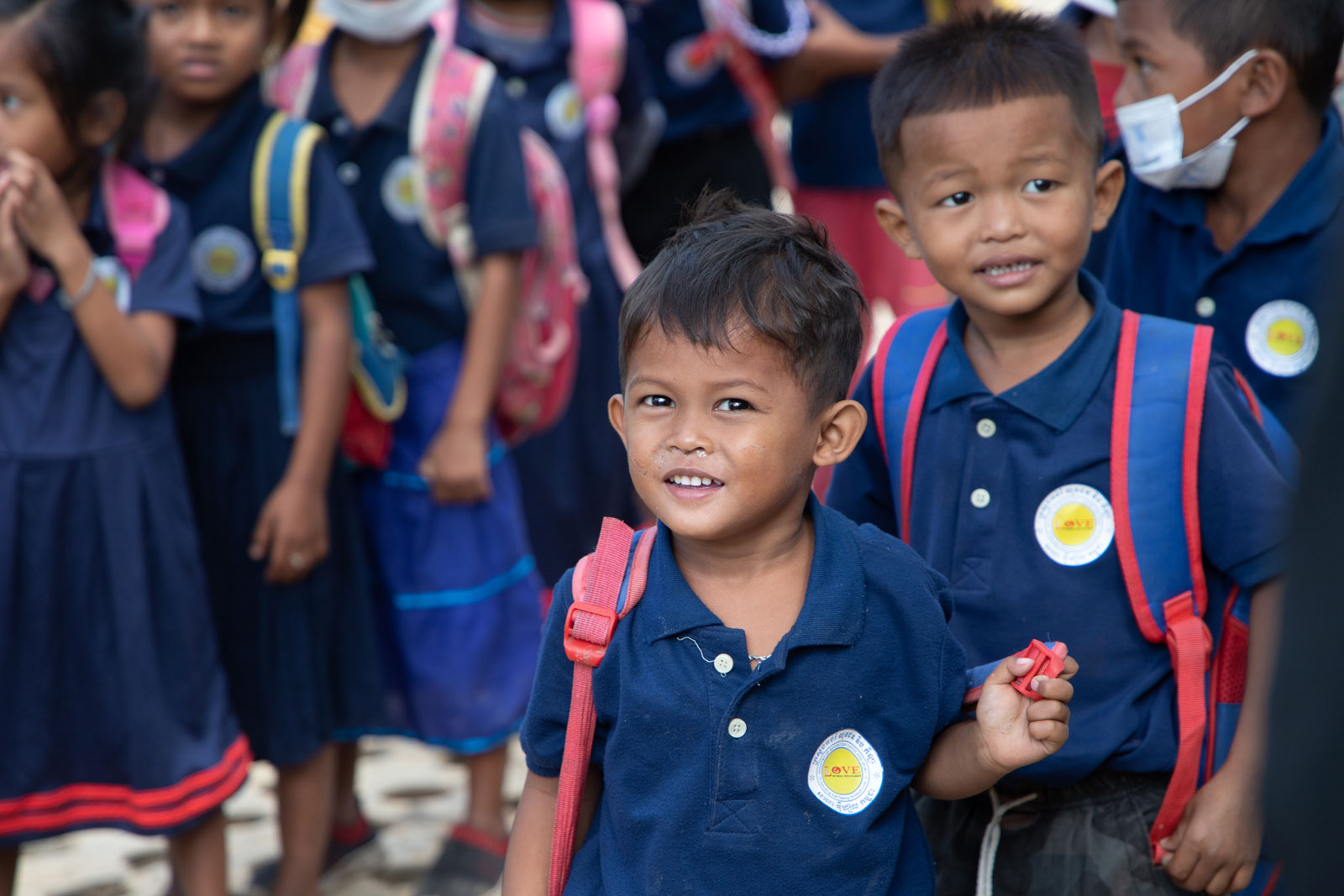

“My father is happy now because my brother and I can go to school,” the sixth grader said, sitting in the shade of a mango tree on Sokhem’s campus for the first time in nearly two years.
With plans to become a teacher so she can “inspire the younger children, to give them the same help that my teachers give me,” Ruby is relieved the worst parts of the pandemic are behind her. “I am so happy coming to school again, here I get to see all my teachers and my friends.”
The names of people and places have been changed to protect privacy and ensure safety.
The production of this article was funded by Love Without Boundaries.

